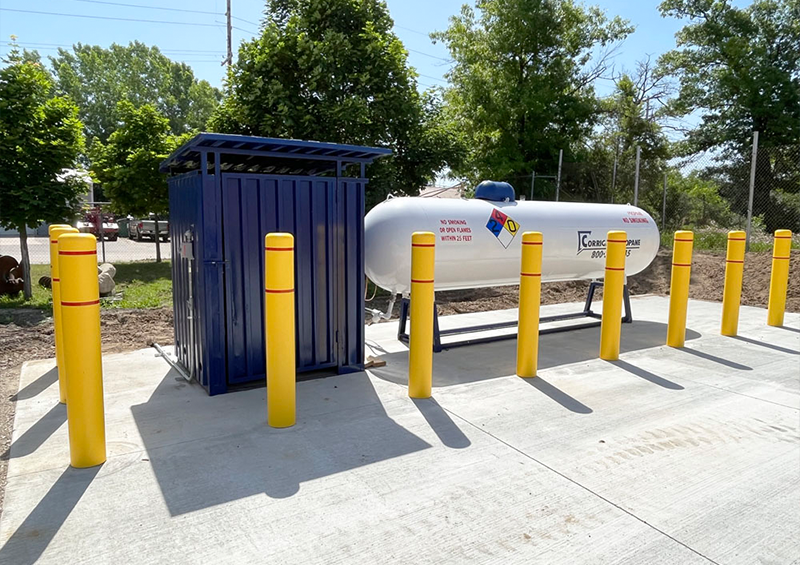Introduction
In a world where environmental concerns are becoming increasingly important, the choice of what energy sources should be utilized is being questioned. Among all the options, propane appears as a popular alternative, offering efficiency, and affordability. Let’s discuss the factors that decide propane’s ecological impact.

The Basics of Propane
Propane, also known as liquefied petroleum gas, is a hydrocarbon used for heating and powering appliances in residential and commercial settings. Propane is extracted as a byproduct from natural gas processing and petroleum refining. It is stored in tanks and delivered to users to carry out various tasks.
Propane’s Eco-friendly Characteristics
Clean Burning Properties
One of the important factors that make propane environmentally friendly is its clean-burning nature. When compared to other fuels like gasoline or diesel, propane combustion produces lower levels of emissions and pollutants. This cleaner burning method improves air quality and reduces carbon footprint.
Reduced Emissions
Propane combustion emits fewer greenhouse gases and air pollutants compared to coal and natural gas. Its combustion releases minimal nitrogen oxides and sulfur dioxide, which are primary contributors to air pollution and acid rain. Using propane for powering devices and heating can result in lesser environmental degradation.
Moreover, Propane’s natural properties prevent it from pooling, minimizing the risk of accumulation in the ground or water in case leaks occur. Another amazing fact about propane is it heats up faster, so you need less propane for burning. Propane-powered heaters and stoves heat 40 percent faster compared to alternate energy-driven appliances.
Lower Carbon Content
The carbon content of propane is significantly lower in comparison to many other fossil fuels. When propane is burned, it produces less carbon monoxide per unit of energy released. This makes propane a sustainable choice for heating homes, organizing outdoor cooking activities, and fueling industrial processes.
Renewable Propane Options
In addition to traditional propane derived from fossil fuel sources, renewable propane is gaining attention as a sustainable alternative. It is produced from renewable sources such as biomass and other organic materials. Renewable propane options further reduce dependency on non-renewable resources and minimize environmental impact.
Propane Applications and Efficiency
Residential Usage
Propane is widely used in residential settings for keeping homes warm, heating water boilers, and as fuel for cooking. As propane is portable, it is chosen for outdoor grills as well. Its versatility, efficiency, and low cost make it a popular choice for homeowners.
Commercial and Industrial Applications
In commercial and industrial sectors, propane finds applications in heating, food processing, agricultural operations, and transportation fleets. Its high energy efficiency and clean burning properties make it a preferable choice for the agriculture, manufacturing, and construction industries. Using propane for commercial activities lowers operating costs and reduces the impact on the environment.
Propane Delivery and Accessibility
With numerous propane companies offering “delivery services near me”, accessing propane for residential, commercial, and industrial needs has been very convenient. From propane tank sales to refill services and deliveries, consumers have access to clean and efficient energy.
Conclusion
As technology advances, the world is shifting towards sustainable energy solutions to save energy for future generations. Propane is a suitable choice for mindful consumers. Its beneficial properties like clean-burning, lower emissions, and versatility make it a great alternative to traditional fossil fuels. Whether you are looking for a 500-gallon propane tank or a 20-lb cylinder to fulfill your needs, propane offers efficiency, affordability, and eco-friendliness that align with the demands of modern energy consumption. Switch to propane for a sustainable future and become a part of the cleaner energy movement.





